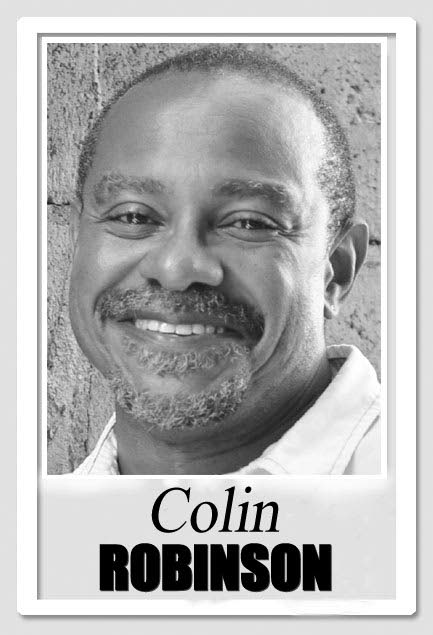How we make each other writers

Caribbean writing is not often an act of generosity. Some stories we yearn to tell even when they are not ours. And some stories want to untell others.
There are two stories I have tried and failed to write in this space. One a year ago was about waves and waterstones, citadels and bees and turtles, about ineffably white wounds, about cannons and canons. And mysteriously its bytes vanished as I saved it to submit.
Another was about you, a writer I have now invited to tell your own story. About the writer you met me through.
I stumbled on Binyavanga Wainaina on Facebook in late 2015. I’d stumbled on him in his Cape Town conference hotel room seven years ago this week. Most famous for the sardonically brilliant Granta essay, How to Write About Africa, his eye-catching lover introduced him, and I quickly pulled out One Day I Will Write About This Place, his Kenyan coming-of-age novel, for an autograph.
An imagined “lost chapter” of it, I Am A Homosexual, Mum, he’d publish as another signature essay, as the world began writing about Africa as the most homophobic place on earth.
He was teaching in New England, he chatted on Facebook, and had the most fortuitous meeting with a young man from Trinidad. Very smart, and a talented writer. I had a long chat with him and he seems game to take some risks with his thinking about his future. His name is Amir and he has been googling you. I think he has a lot of zamzing zamzing.
For a time it is 2015 and I am meeting him. He sits next to me, at a fancy table eating a fancy meal; he is the fanciest writer I have met to date. I have only recently found that the stories I love are not mountains but a trillion fistfuls of dirt. I have swallowed his dirt and he does not know me. The first thing he asks is where I plan on studying abroad. I say, “Italy.” He asks why. And I barely have an answer. Go to Africa, he says.
Africa is still riven with longing, shrouded in Kambili’s dust under her burning feet, rolling somewhere between Kigali hills and the Atlantic, it is a thing still in loss. For Mr. Wainaina it is riven with home. More than a memory for Africa, Mr Wainaina offered me a story.
Mr Wainaina is my first celebrity and he is everything but. We are students who have read his work, so we are still struck and watching him like a TV screen. He is still uncomfortable with this, I notice.
“We become them.” Is the only thing I remember him saying. He is speaking about our parents. He is also, of course, speaking about his own. I have become them. It is a warning for us, and a comfort, I imagine, for him. He has seen me.
I remember seeing his picture at the back of his novel and being scared. His hair is red. He is a foreign thing. African. Older. Black and gay. And writing about it. Yet being seen by him feels like kin. He has given me more than some of my own blood relatives. I do not know it yet, but he has given me a language. He explodes the present with memory, revises the past in the future. What greater gift is there? A word is a world.
A few months later when I return home, Mr Wainaina tells me about a poet I should meet. He is the only gay writer I know from my home. He is the only writer I know from my own home. And we share words. Home is still a thing riven with green days and spilled milk. Home, for me, is still a thing lost. Mr Wainaina offers me more than a memory, more than dust, he offers me a friend. There are few gifts more precious than a friend in a strange place.
The month after this introduction, Binyavanga had a stroke. He recovered. And died on Tuesday.
And now here we are mourning the first friend we shared.
African characters should be colourful, exotic, larger than life – but empty inside, Binya mocked. And always end your book with Nelson Mandela saying something about rainbows or renaissances.
“...in this tumble of toco in any of these threads the dogs the drunks the young men the key in the hope of others’ threading hands there must be the start of a poem,” I wrote of one Caribbean space where I found a generative sense of writing community. This July, you, a young man who calls me father, and his fiancée will all attend that Cropper workshop. Perhaps it is I who am becoming you.
Of all Mr Wainaina’s gifts, you are my most treasured. A friend in a strange place, sharing a story.
Amir Denzel Hall is the co-author of this week’s column.

Comments
"How we make each other writers"